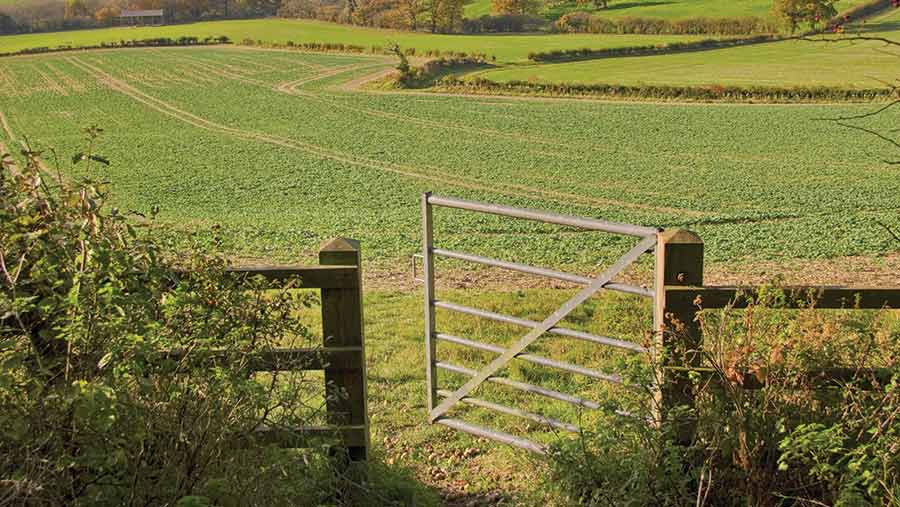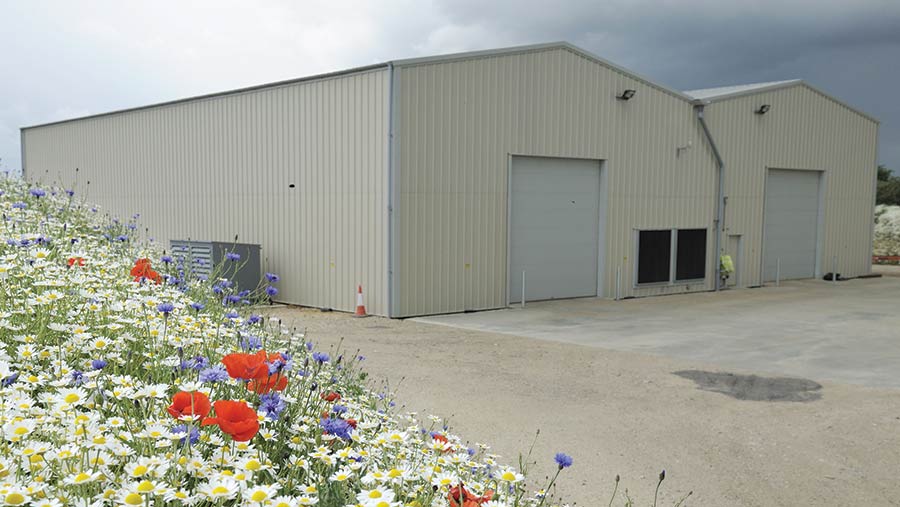Expert tips on how to apply for a farm tenancy
 © Nicholas and Sherry Lu Aldridge/FLPA/REX/Shutterstock
© Nicholas and Sherry Lu Aldridge/FLPA/REX/Shutterstock Creating a new farm tenancy agreement is a major decision for both potential tenants and landlords, and the application process takes up a lot of time, effort and energy.
To be successful, applicants must be prepared to showcase their skills, practical farming ability, business experience, financial sustainability and sound judgement.
Any new tenancy offered by a landlord will be a Farm Business Tenancy (FBT) governed by the Agricultural Tenancies Act 1995. FBTs are normally let for fixed terms with no guarantee of a further term being granted.
See also: The benefits of becoming a council farm tenant
Finding a tenancy
- When looking for farms it is important to have an open mind and not be limited to one area; be prepared to move
- The farming press, either local or national, is the best place to look for farm tenancy opportunities
- You can also approach land agents and speak to county councils to register your interest; some have waiting lists
- In addition, the Tenant Farmers Association (TFA) advertises known tenancy opportunities on its website for members to access
- Landlords often provide tender packs through their agents for potential applicants and it is not unusual for agents to charge a small fee for these packs – usually around £10-£20
- It makes sense to understand the nature of the landlord providing the opportunity and the reasons they are offering it
- With stiff competition in the marketplace, there will be many landlords who will simply look for the highest rent from the least risky option for a short number of years. These landlords will normally look to let to existing operators seeking to spread fixed costs by taking on additional land.
- Other landlords are looking for a long-term relationship and are willing to assist new entrants
- Landlords such as the National Trust and county councils will generally look more favourably on an applicant who shows commitment to the enhancement of the natural environment and/or has an interest in educational visits
Viewing the farm
- Make the most of the viewing day for the farm by assessing the land and buildings and getting a good feel for the place. It is important to dress tidily in clean clothes and create a good first impression.
- Be polite and ask questions to develop a relationship with the letting agent, and try to stand out from the crowd from the start of the process
- Use the opportunity to glean as much information as you can from either the outgoing tenant or neighbouring farmers
- Go back for a second viewing, think about which farming system you will adopt and what suits the farm, and ask yourself what improvements you will need to make and how much they might cost. Take a friend or a professional to talk through these issues.

© FLPA/REX/Shutterstock
Starting the application
- Give yourself time to prepare the business plan and tender documents. It will take weeks to prepare a well-thought-out tender and it may need to be revisited and altered before it is finally submitted.
- Your tender should be based on the information you have gathered on the viewing days and from the agent. Make sure you always familiarise yourself with the terms of any tenancy agreement, if available, before submitting a tender application.
- You will need to decide on an appropriate business proposition that will succeed and suit the farm and is permitted within the terms of the tenancy agreement you will draw up with the landlord
- You should always prepare a budget, cash flow and balance sheet to demonstrate the viability of the business and show your current assets, how you would finance taking over the farm and any desirable improvements you intend to make
- The skills used in applying for a tenancy come with practice and you may wish to consider asking an adviser to help you put your application together
- It is important to take ownership of your business plan and budgets. It is your tender and you must both understand it and be prepared to justify it.
- Present your information in a clear and logical way; your figures will have to stand scrutiny and questioning. While it is recognised they will be no more than best guesses, they will reflect your approach and judgement.
- Your business plan should address what you see as your future beyond the initial offered term
- It is important to decide on a level of rent that is sustainable. Do not overestimate the rental value; it might win you the farm, but leave you with a huge financial burden and a failing business.
- Make sure you think about all the costs and work out what you are actually paying for. Be realistic as routine improvements, such as repairs to fences and clearing ditches, will cost you time and money and may hold you back.
- Look at the pattern of rents in your area and seek professional advice if you are unsure about what to tender
The final stage
- Once the landlord’s agent has received tenders from all applicants, typically a shortlist is chosen
- Following a formal interview, the landlord will make the final choice. If you are successful, the landlord will provide you with a written FBT agreement.
- Before signing, you should check that it contains the terms you expected, and seek advice on this
- If you are thinking about diversification, make sure it is permitted within the terms of the tenancy
- If you don’t succeed on your first attempt, ask for feedback and keep trying – perseverance should be your watchword
TFA chief executive George Dunn answers questions from tenancy seekers Kim Sharpe and Will Giles
Q. A lot of people admire how we farm but do not believe we can take it to the next level.
Some feedback from our tenancy applications was that our business plan is based upon expanding cattle and sheep numbers and it is very difficult to show we can do it without having the stock totals high to begin with.
Do you have any suggestions on how we can show we can expand if given the chance?
A. In any business plan it will be important to demonstrate the steps that need to be taken to move from existing levels of business to new levels, taking time to highlight the dependencies or risk factors along the way and what will be done to address those.
It would also be helpful to obtain a bank reference supporting plans for additional borrowing to expand the business.
Q. With Brexit looming everyone wants their business plan to be Brexit-proof but the truth is that no one really knows what is going to happen.
What suggestions do you have for a more secure future in farming without relying solely upon subsidy?
A. The key for any business to succeed is to focus on margin. This requires an unrelenting determination to reduce costs as well as driving up the value of output.
Benchmarking is a good tool to use to assist with the former and understanding the downstream supply chain to deliver what is needed by your customer will be key to the latter.
Useful contacts
Tenant Farmers Association
Website: tfa.org.uk
Tel: 0118 930 6130
Email: tfa@tfa.org.uk
Address:
5 Brewery Court
Theale
Reading
Berkshire
RG7 5AJ
NFU
Website: nfuonline.com
Tel: 024 7685 8500
Address:
NFU HQ
Agriculture House
Stoneleigh Park
Stoneleigh
Warwickshire
CV8 2TZ
National Federation of Young Farmers’ Clubs (NFYFC)
Website: nfyfc.org.uk
Tel: 02476 857 200
Email: post@nfyfc.org.uk
Address:
YFC Centre
10th Street
Stoneleigh Park
Kenilworth
CV8 2LG
Farming Connect, delivered by the Welsh government
Website: businesswales.gov.wales/farmingconnect
Tel: 08456 000813
Scottish Land Matching Service, delivered by the Scottish government
Website: nfus.org.uk/policy/joint-venture-hub
Tel: 07741 902 648
Email: slms@nfus.org.uk
The Land Mobility Scheme in Northern Ireland, delivered by the Young Farmers’ Clubs of Ulster and the Ulster Farmers’ Union
Website: yfcu.org/land-mobility-scheme
Tel: 07833 668 602
Email: landmobility@gmail.com
